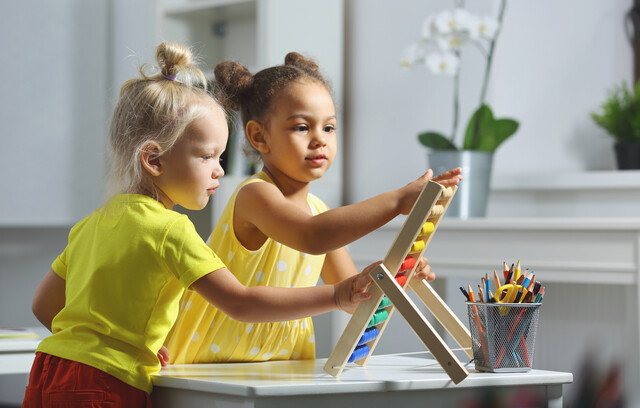Do you know what values and core beliefs you hold? Perhaps it is something you haven't ever sat down and thought about, but they do exist. We all have particular values and core beliefs. We may not all hold the same ones, but they play an important role in both society, and one's own life, including how someone sees themself and their self-esteem.
Defining Values and Core Beliefs
Every family and individual is largely defined by the values and core beliefs that they hold. Some are culturally influenced, while others may be within families, or individually adopted. But they help to define who a person is and will impact how others see them, and how the person sees themself.
Here are some common personal values that people can identify with:
-
Commitment
-
Determination
-
Gratitude
-
Hard working
-
Integrity
-
Openness
-
Perseverance
-
Truth
-
Reliability
In some cultures they may place an emphasis on being a hard worker, while some families may raise their children to be reliable. Whatever type of values you have in your family, or with the children in your life, it is important that you help define what they are, and teach them to children.
Although adolescent females tend to suffer from more body image issues than their male counterparts, when it comes to overall self-esteem, the genders are at about the same level. Research published in the July 2011 issue of the "Journal of Personality and Social Psychology," found there is no significant difference between the self-esteem levels of males and females. The same study also found that during adolescence, Hispanics had a lower self-esteem level than white and black adolescents, but by the time they were around 30, they had a higher self-esteem than their non-Hispanic peers.
Ways to Teach Values
Values are important to helping shape our lives. They provide us, and our children, with boundaries and limitations, and as we have learned previously, that can have a positive impact on one's self-esteem. When children understand their family's values, it will provide them with a road map for making positive choices and steering clear of negative situations. Knowing how to make the right decisions will empower children, which helps to raise their self-esteem, because they feel more confident in their decision-making skills.
Here are some ways that you can teach values to children:
-
Share stories with them that have a lesson that can be learned. These can be from your own experience, or just old stories that have been passed down.
-
Be a good role model and live your values. The importance of this cannot be overstated. If children see you living your values, they are likely to adopt them as well.
-
Get them involved in your faith or religion, so they can learn more about some of the foundations of many values, and they can strengthen their resolve to adhere to them.
-
Notice where children are also learning values, so that you can make sure they are being taught values you agree with. This includes keeping tabs on the value influence of school, groups, and friends.
-
Have a discussion about values with your child. Discuss what they are, why they are important, and how they can live by them.
-
Limit their exposure to things like television shows and movies that may not share the same values that you want your children to learn.
-
Find ways for others to get involved teaching your child values. For example, there are groups that they can learn a lot from, such as Girl Scouts, or the 4-H Club.
-
Hold your children to high expectations when it comes to living the family values. When they are not living them, steer them back on course.
-
Catch them living the family values, and praise them for making the good choices and doing the right thing.
When you do help children to learn values, they are going to be more confident and make better choices. This is going to go a long way toward helping to raise their self-esteem.
Most people are not that familiar with the laws of attraction and the power of positive thinking. Sure, we all know that thinking positively is a good thing, but what we don't realize is the immense influence it actually has over one's life. Those who understand the power of positive thinking, and use it regularly, tend to live a happier, more satisfying life.
Imagine if you could teach your child one thing that will not only make them feel more confident, but will empower them, and help them be more successful in everything that they attempt throughout their life. Sounds pretty good, right? And the good news is that you can! The power of positive thinking, and the laws of attraction, will do exactly that for you, and your child. It's all a matter of learning about it, applying it, and letting the success come your way!
The Laws of Attraction Defined
The laws of attraction are really all about positive thinking. When we focus on the negative, or things that we don't want, we tend to get more of that, simply because that is where we are putting our energy. Yet when we focus on the positive and all that we do want, we tend to get more of that. Like Buddha said, "What we think, we become."
Let's say, for example, that there is something we want to accomplish, such as passing a test. Rather than saying you will never do it, it is too difficult, you are not good at that subject matter, etc., you think positively. You tell yourself that you will indeed pass the test, that you are good at it, and that it is something you will have no problem with. That kind of self-talk is empowering and will put the mind in the right frame to help make it happen.
The Laws of Attraction are about bringing into your life what it is that you want, through your thoughts and beliefs. Those thoughts that dominate in your mind will tend to be the ones that manifest, making it important that you quickly show negative thoughts the door and clear them out of your mind. When you focus on positive thoughts, you will become a happier person, and you will attract better things into your life.
Teaching Children
The power of positive thinking is so important because it is something that can easily be taught to children that will help to build their self-esteem and empower them. They will learn that they can do things if they put their mind to it. Rather than having limiting beliefs on what they can accomplish, they will feel as though they can achieve whatever it is that they put their mind, and thoughts to. What an empowering way to live!
Self-esteem, when you get down to the basis of it, is about how one feels about themself and their abilities. If a child, or an adult, feels they have the power to achieve things and be great at whatever they do, and they apply it, then they will remove many limitations and will succeed far more often.
Thinking Positively
Just as with many other issues, including self-esteem, there are some skeptics and those who find it controversial. But it is difficult to deny the power that positive thinking has in one's life. People who are positive thinkers tend to:
-
Look at problems as challenges that are to be overcome, rather than seeing them as something that will hinder them.
-
Find their life more enjoyable and get along better with others.
-
Be open-minded and will consider the ideas and suggestions that others put forth.
-
Feel grateful for the things they have in their life and see the good in others and in what they have in their life.
-
Take responsibility for their actions and care more about their body language and how their actions impact others.
-
Be much better at dealing with problems that may arise and have better coping skills for disappointments.





























